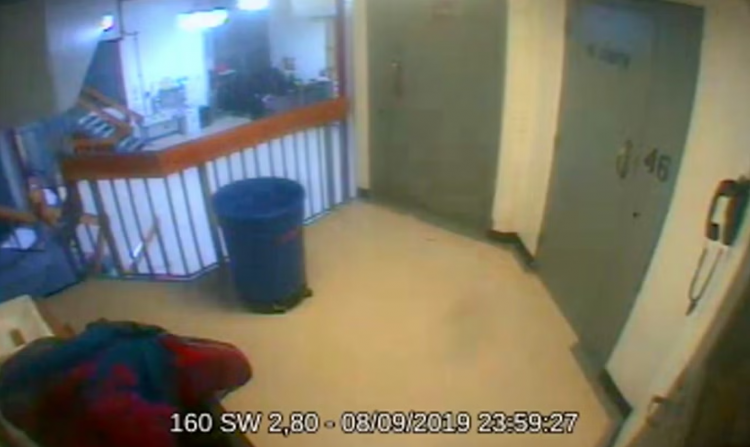A newly released surveillance clip from Jeffrey Epstein's final night in custody shows the so-called "missing minute" outside his cell, undermining earlier explanations from the Justice Department and reviving scrutiny of the 2019 death of the convicted sex offender.
The footage, part of a 33,000-page document release by the House Oversight Committee on Tuesday, fills a one-minute gap that critics had long cited as evidence of a cover-up. In the DOJ's July release of 11 hours of raw surveillance from New York's Metropolitan Correctional Center, the clock abruptly jumped from 11:58:58 p.m. on Aug. 9, 2019, to 12:00:00 a.m. on Aug. 10. Epstein was found dead hours later, a death ruled suicide.
At the time, Attorney General Pam Bondi dismissed speculation, saying the prison's outdated system automatically deleted the last minute each night when the cameras reset. The newly surfaced footage, however, shows the data switching over at midnight, with two clips later combined, suggesting a technical quirk rather than missing evidence. Nothing of note occurs during the fragment, which shows guards moving near Epstein's cell.
Bondi has not addressed the discrepancy. The fresh release is unlikely to quell conspiracy theories, which gained traction among some of President Donald Trump's supporters, particularly after Wired reported that metadata in earlier files suggested the footage had been modified using editing software. Forensic experts cited by the magazine and CBS News concluded that the video's metadata indicated it had been created in May 2024, not 2019, raising questions about its authenticity.
Professor Hany Farid, a digital forensics expert at UC Berkeley, told Wired the recording would not hold up in court, pointing to "sudden" changes in aspect ratio. CBS separately reported that the latest tranche also includes video of Epstein escorted to make a phone call, as well as thousands of court filings, emails and audio files.
Rep. Robert Garcia (D., Calif.), the top Democrat on the committee, accused Republicans of exaggerating the release. "The 33,000 pages of Epstein documents James Comer has decided to 'release' were already mostly public information. To the American people - don't let this fool you," Garcia said. He estimated that 97% of the material was previously available.
Still, bipartisan pressure is mounting. Reps. Ro Khanna (D., Calif.) and Thomas Massie (R., Ky.) have introduced a measure requiring the DOJ to release all unclassified Epstein records, including FBI files and federal prosecutors' documents.






